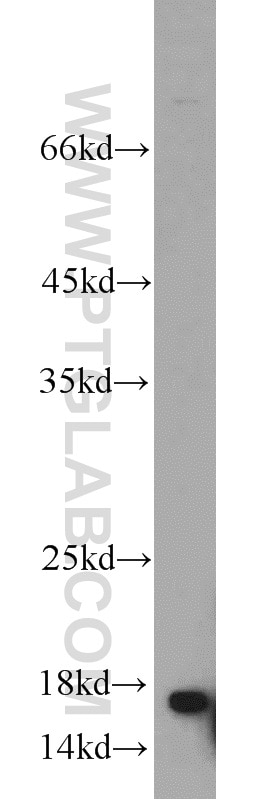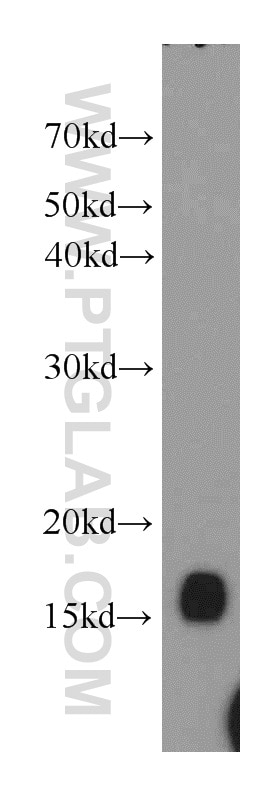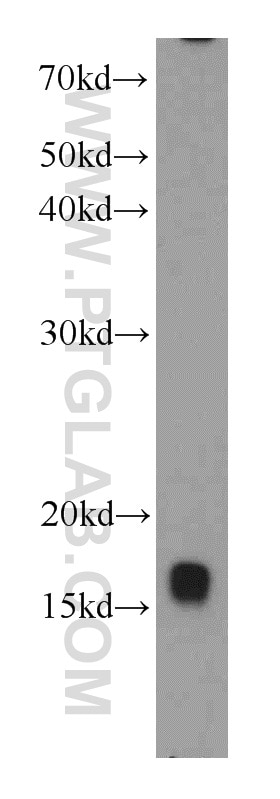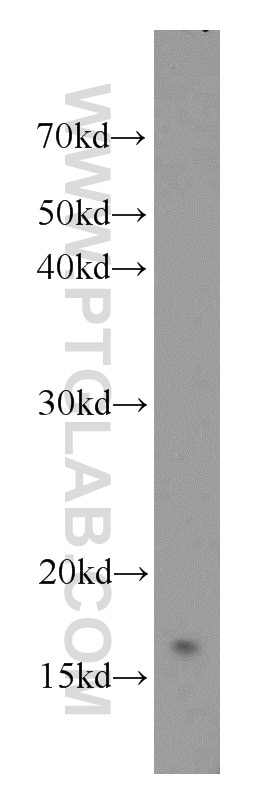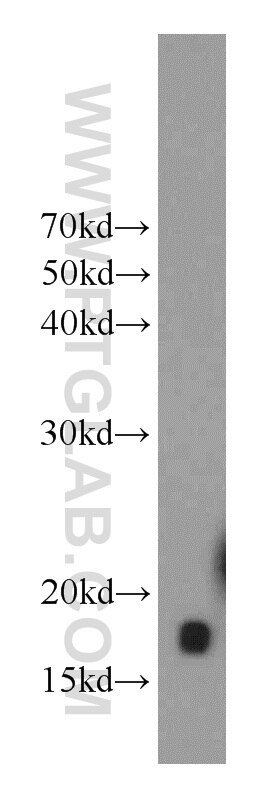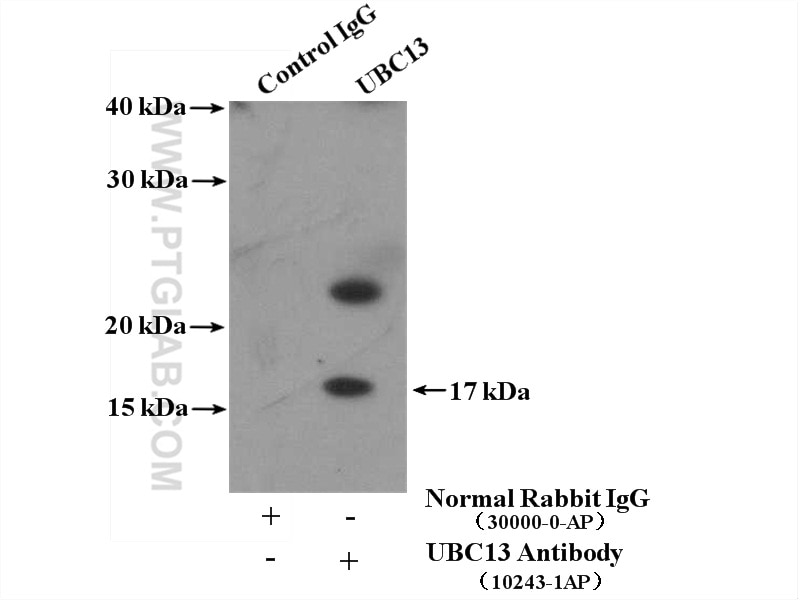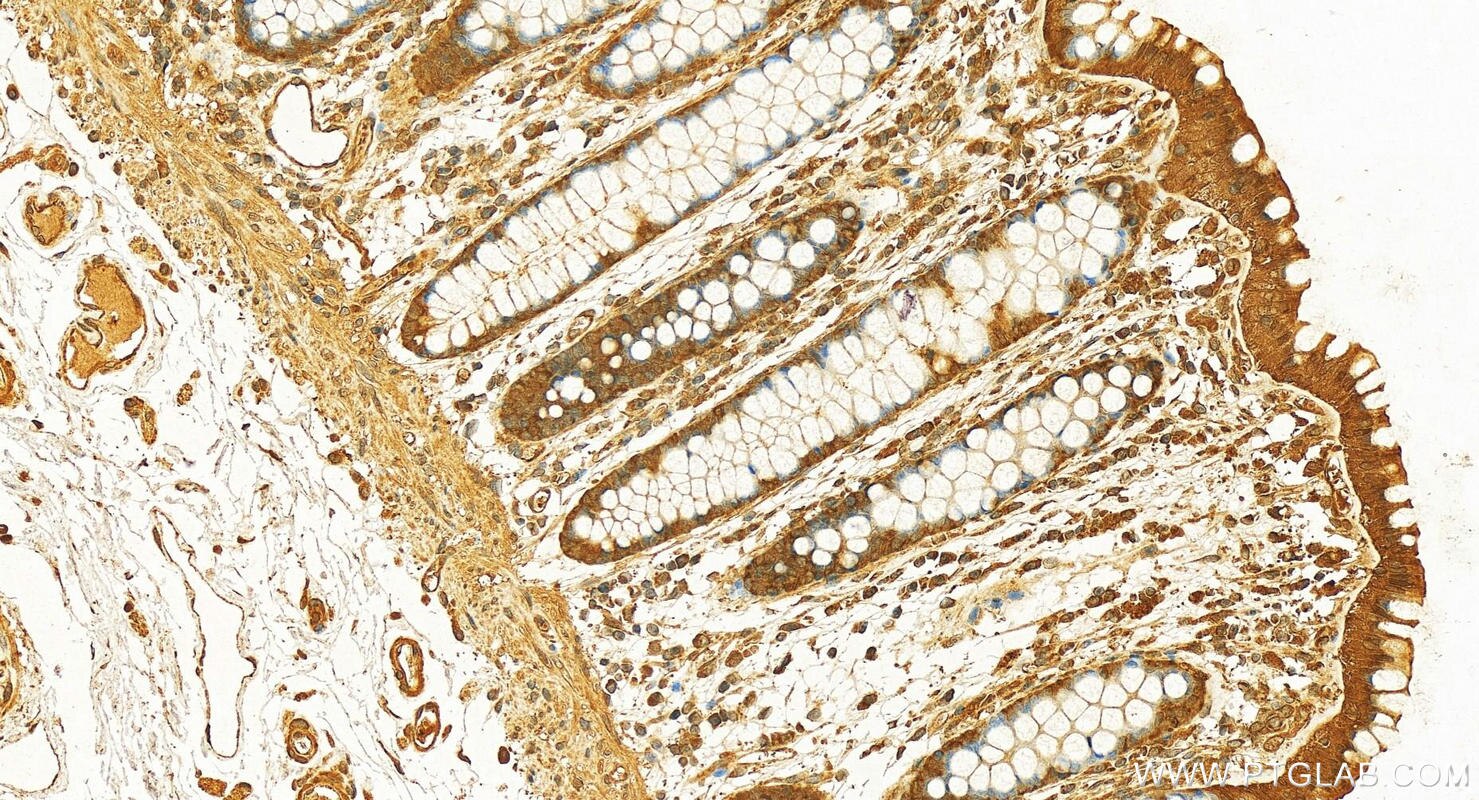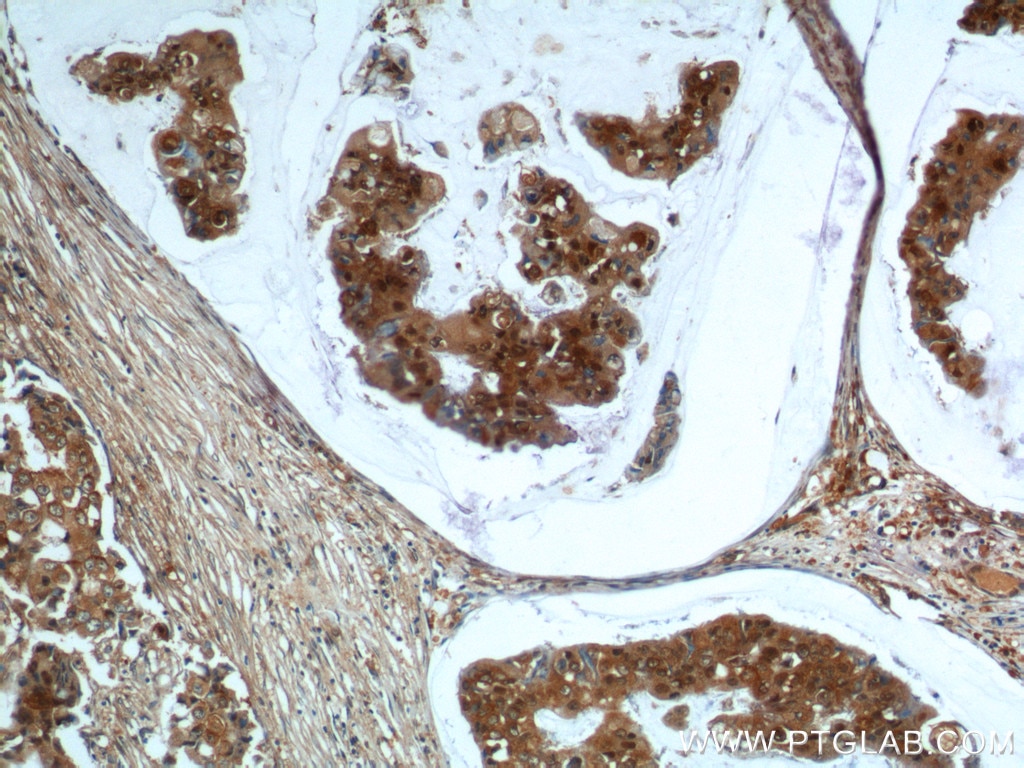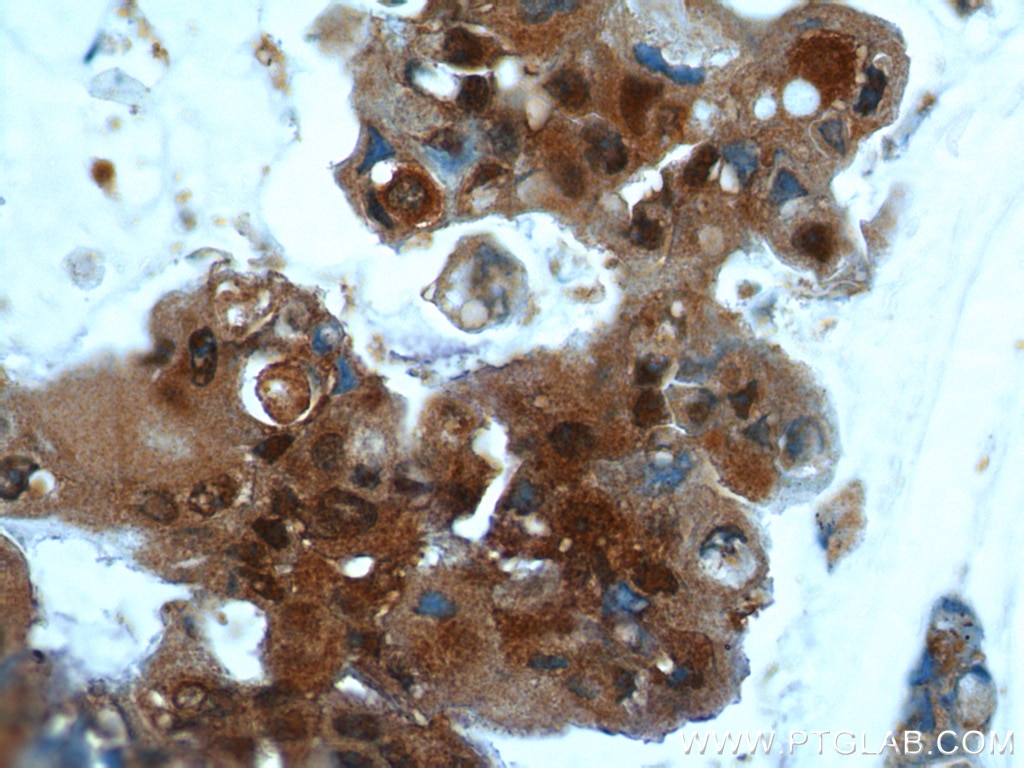Validation Data Gallery
Tested Applications
| Positive WB detected in | mouse thymus tissue, human heart tissue, Jurkat cells, mouse small intestine tissue |
| Positive IP detected in | MCF-7 cells |
| Positive IHC detected in | human colon tissue, human breast cancer tissue Note: suggested antigen retrieval with TE buffer pH 9.0; (*) Alternatively, antigen retrieval may be performed with citrate buffer pH 6.0 |
Recommended dilution
| Application | Dilution |
|---|---|
| Western Blot (WB) | WB : 1:500-1:2000 |
| Immunoprecipitation (IP) | IP : 0.5-4.0 ug for 1.0-3.0 mg of total protein lysate |
| Immunohistochemistry (IHC) | IHC : 1:50-1:500 |
| It is recommended that this reagent should be titrated in each testing system to obtain optimal results. | |
| Sample-dependent, Check data in validation data gallery. | |
Published Applications
| WB | See 5 publications below |
| IHC | See 1 publications below |
| IP | See 1 publications below |
Product Information
10243-1-AP targets UBC13 in WB, IHC, IP, ELISA applications and shows reactivity with human, mouse, rat samples.
| Tested Reactivity | human, mouse, rat |
| Cited Reactivity | human, mouse, pig, monkey |
| Host / Isotype | Rabbit / IgG |
| Class | Polyclonal |
| Type | Antibody |
| Immunogen | UBC13 fusion protein Ag0292 相同性解析による交差性が予測される生物種 |
| Full Name | ubiquitin-conjugating enzyme E2N (UBC13 homolog, yeast) |
| Calculated molecular weight | 17 kDa |
| Observed molecular weight | 17 kDa |
| GenBank accession number | BC000396 |
| Gene Symbol | UBC13/UBE2N |
| Gene ID (NCBI) | 7334 |
| RRID | AB_2288109 |
| Conjugate | Unconjugated |
| Form | Liquid |
| Purification Method | Antigen affinity purification |
| UNIPROT ID | P61088 |
| Storage Buffer | PBS with 0.02% sodium azide and 50% glycerol , pH 7.3 |
| Storage Conditions | Store at -20°C. Stable for one year after shipment. Aliquoting is unnecessary for -20oC storage. |
Background Information
The modification of proteins with ubiquitin is an important cellular mechanism for targeting abnormal or short-lived proteins for degradation. Ubiquitination involves at least three classes of enzymes: ubiquitin-activating enzymes, or E1s, ubiquitin-conjugating enzymes, or E2s, and ubiquitin-protein ligases, or E3s. UBE2N is a member of the E2 ubiquitin-conjugating enzyme family. Studies in mouse suggest that this protein plays a role in DNA postreplication repair.
Protocols
| Product Specific Protocols | |
|---|---|
| WB protocol for UBC13 antibody 10243-1-AP | Download protocol |
| IHC protocol for UBC13 antibody 10243-1-AP | Download protocol |
| IP protocol for UBC13 antibody 10243-1-AP | Download protocol |
| Standard Protocols | |
|---|---|
| Click here to view our Standard Protocols |
Publications
| Species | Application | Title |
|---|---|---|
Alzheimers Dement Suppressing UBE2N ameliorates Alzheimer's disease pathology through the clearance of amyloid beta | ||
Cell Mol Immunol The deubiquitinase OTUB1 augments NF-κB-dependent immune responses in dendritic cells in infection and inflammation by stabilizing UBC13. | ||
Mol Cell Proteomics The mechano-ubiquitinome of articular cartilage: Differential ubiquitination and activation of a group of ER-associated DUBs and ER stress regulators | ||
Nat Commun FTO-dependent m6A modification of Plpp3 in circSCMH1-regulated vascular repair and functional recovery following stroke | ||
Mol Biomed SP1 transcriptionally regulates UBE2N expression to promote lung adenocarcinoma progression |
